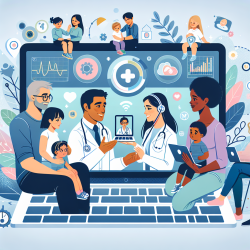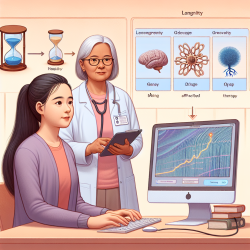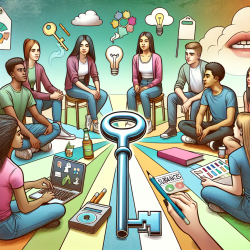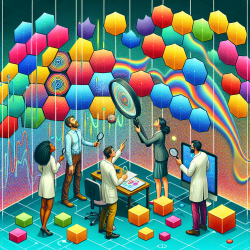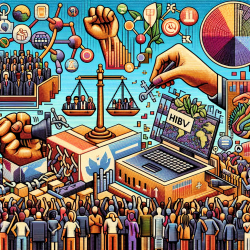Introduction
In the realm of speech-language pathology, understanding the diverse experiences and resilience processes of different populations can significantly enhance therapeutic outcomes. The research article titled “God Didn’t Make a Mistake in Creating Me”: Intrapersonal Resilience Processes among Gay and Bisexual Male Youth in Kenya offers valuable insights into the resilience mechanisms employed by gay and bisexual male youth in Kenya. These insights can be instrumental for practitioners aiming to improve their skills and foster better outcomes for children and adolescents.
Understanding Resilience in Kenyan Youth
The study conducted in Kisumu, Kenya, sheds light on the intrapersonal resilience processes among gay and bisexual male youth. Despite facing pervasive stigma and discrimination, these individuals demonstrate remarkable resilience through various processes. The research identified nine primary themes that contribute to their resilience:
- Sexual Identity Acceptance
- Self-Confidence
- Self-Love
- Religious/Spiritual Affirmation
- Adaptive Coping
- Successful Navigation
- Legal Rights Awareness
- Economic Stability
- Advocacy Satisfaction
Implementing Research Outcomes
Practitioners can leverage these findings to enhance their therapeutic approaches. Here are some strategies to consider:
- Promote Self-Acceptance: Encourage clients to embrace their identities, fostering an environment of self-acceptance and pride.
- Build Self-Confidence: Develop programs that enhance self-efficacy and confidence, helping clients set and achieve personal goals.
- Foster Adaptive Coping: Introduce coping strategies such as physical activities, art, and media consumption to manage stress effectively.
- Enhance Legal Awareness: Educate clients about their legal rights, empowering them to navigate societal challenges confidently.
- Encourage Advocacy: Support clients in engaging with community advocacy, promoting a sense of belonging and purpose.
Encouraging Further Research
The study highlights the need for a paradigm shift from deficit-focused research to a strengths-based framework. Practitioners are encouraged to conduct further research to explore resilience processes in diverse populations. Understanding these processes can lead to the development of targeted interventions that promote positive mental health and wellbeing.
Conclusion
The resilience demonstrated by gay and bisexual male youth in Kenya offers valuable lessons for practitioners worldwide. By integrating these insights into therapeutic practices, speech-language pathologists can create supportive environments that foster resilience and positive outcomes for children and adolescents. For those interested in delving deeper into this research, the original paper provides a comprehensive exploration of these resilience processes.
To read the original research paper, please follow this link: “God Didn’t Make a Mistake in Creating Me”: Intrapersonal Resilience Processes among Gay and Bisexual Male Youth in Kenya.



